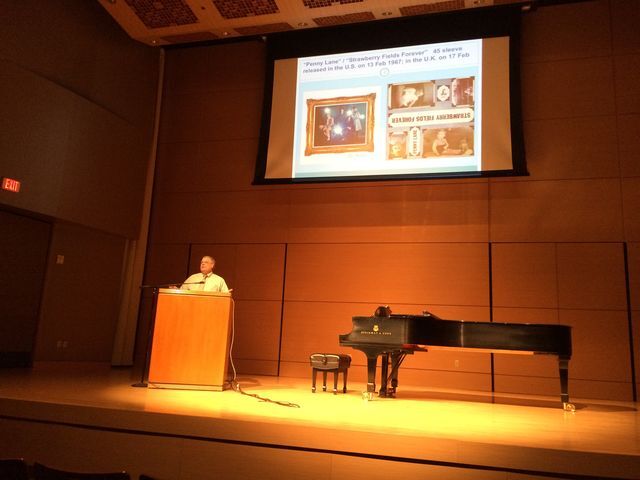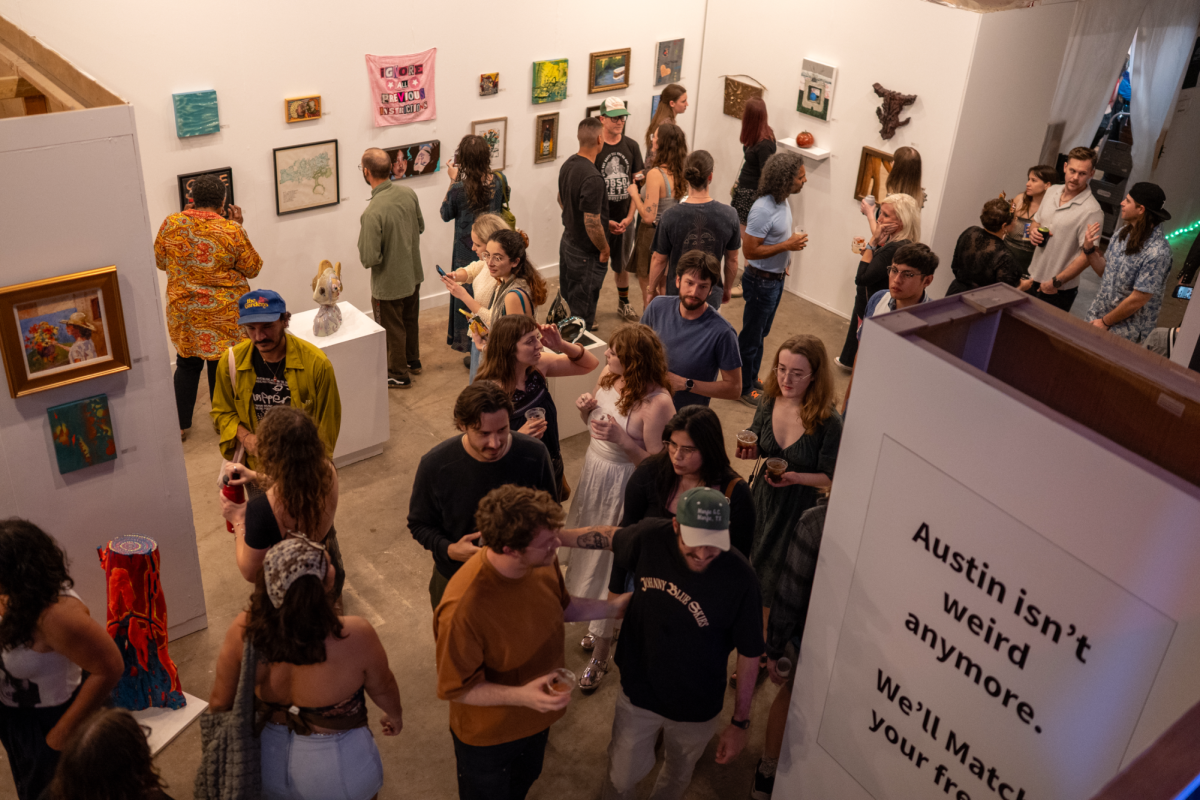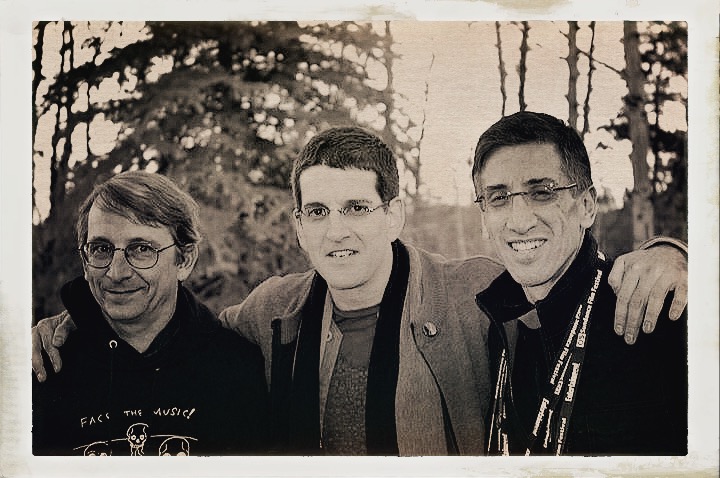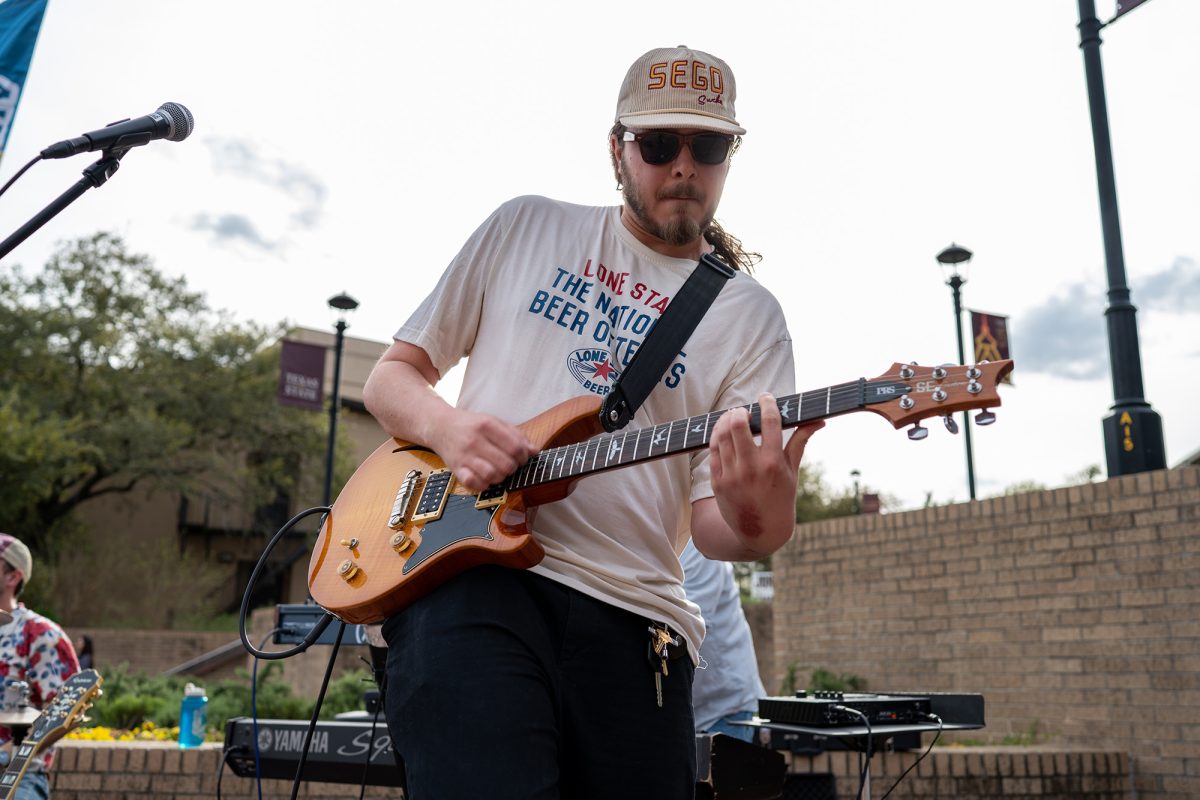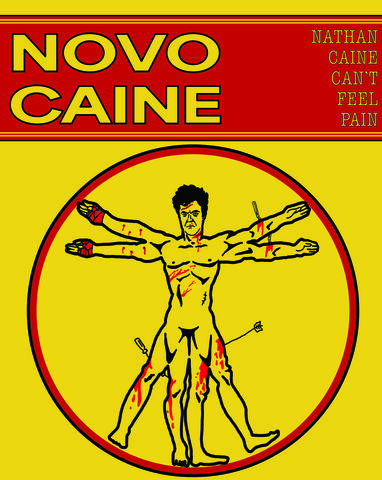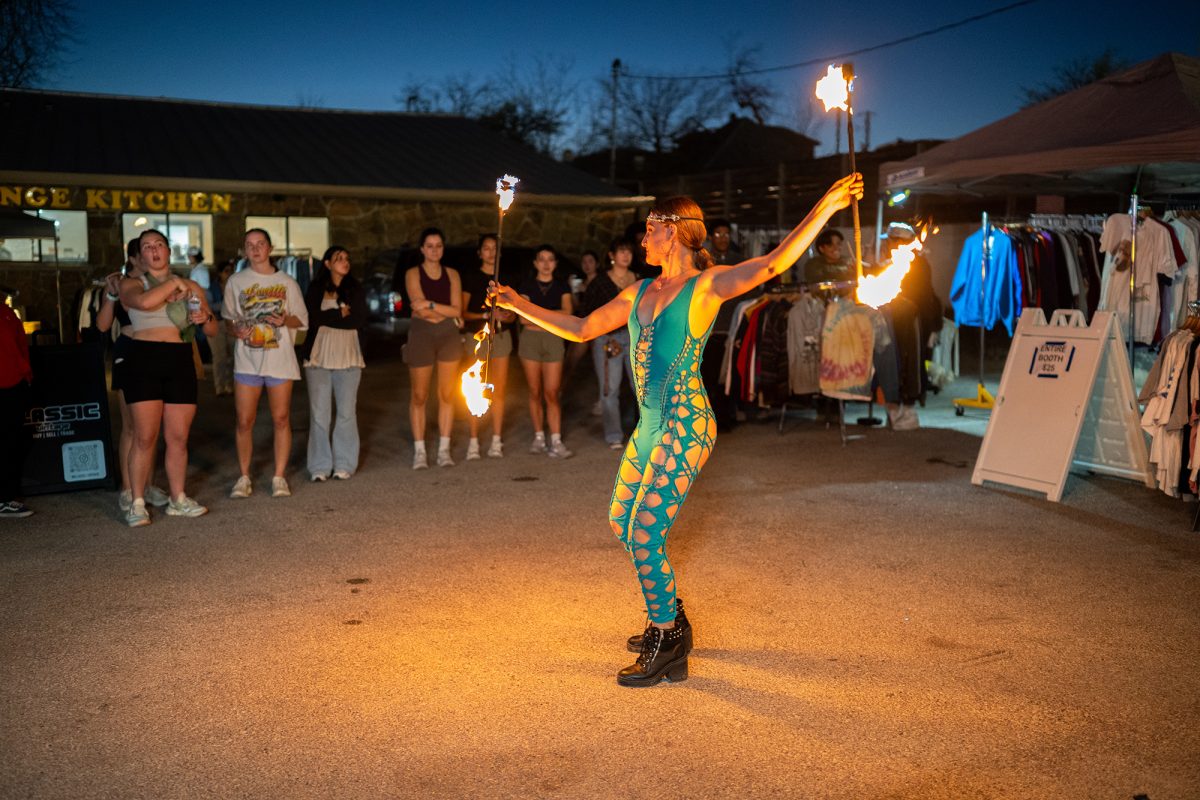The Beatles members forewent a journey of fame and fortune during their lives, but not without a struggle.
Visiting Scholar Walter Everett, Professor of Music Theory from the University of Michigan, gave a presentation March 6 about unfolding the psychology and success of the fab-four.
Katie Kapurch, assistant professor of English, invited Everett to speak at Texas State. She met Everett at a Beatles conference at Penn State in 2014. She said after he read one of her publications, they decided to collaborate because they shared similar interests related to the representation of sex, sexuality and gender in pop culture.
Kapurch said they have contracted with Bloomsbury for a book with the working title, “Sex and Gender in Rock and Pop from the Beatles to Beyoncé”
The free co-sponsored event featured a presentation that delved into the composition of the 1967 single “Strawberry Fields Forever”. Everett has published an acclaimed two-volume book “The Beatles as Musicians” and stands at the forefront of scholarly research on The Beatles.
The event was co-sponsored by the Therese Kayser Lindsey Endowment, the Department of English, the College of Liberal Arts, the College of Fine Arts and Communication, the School of Music, the Department of History, and the Center for Texas Music History.
Through live piano, original audio recordings and visual demonstration, Everett discussed the monumental art that arose from a time of uncertainty and insecurity.
Everett said as 1966 came to a close, The Beatles members faced one of the most trying periods of their lives. They nearly disbanded after a disastrous situation in the Philippines after insulting the First Lady by not attending a reception resulting in the band having to renounce all of their tour income to the Filipino government. Lennon said The Beatles were more popular than Jesus, causing more uproar.
After a difficult United States tour featuring inadequate sound equipment and the members continuously packed into tight metal vans, touring became impossible. At the end of 1966, George Harrison famously stated, “I’m not a Beatle anymore!”
“Strawberry Fields Forever” was originally produced as a single alongside the song “Penny Lane”. Everett said both titles are actual locations in Liverpool, the city where The Beatles grew up. Strawberry Field was an orphanage where John Lennon used to visit and play as a child.
After the 1966 touring fallout, Lennon spent time filming a movie in Spain where he wrote the beginnings of “Strawberry Fields Forever.” Everett played early audio recordings of Lennon’s beginning drafts and analyzed the lyrics regarding how they revealed the psychology of Lennon’s insecurity at the time.
“It was a really personal statement which is a huge contrast to (the band’s) early songs which focused on boy/girl relationships,” Everett said.
Everett also analyzed the composition of the chords with a live piano. He said Lennon drew from “Doo-Wop” chords but strayed from typical four-chord progression. Everett said the melody and chord progression also assisted in creating a sense of insecurity in the song.
Claire Cremeens, College of Liberal Arts advisor, attended the event and said she found she had a lot more to learn about The Beatles.
“(Everett is) still a pioneer in the field and I think it’s important for this kind of content to be explored further,” Cremeens said.
She said the event was a great way to blend both the music and English departments together in one presentation.
Kapurch said The Beatles appeal to many majors across campus and wanted to invite Everett to campus to demonstrate the musical aspects of the bands’ innovation.
“The Beatles are a touchstone for meaningful interdisciplinary conversations,” Kapurch said.
The Beatles have left behind a large body of work depicts the members’ lives throughout the years and Everett continues to analyze the walls they broke down with their artistry.
Updated: This article was corrected March 7, 2018 as off 11:00 p.m.
Categories:
Searching for Strawberry Fields during deep crisis
March 7, 2018
Walter Everett discusses the release of the single Strawberry Fields Forever.
Photo by
Diana Furman | Lifestyle Reporter
0
Donate to The University Star
Your donation will support the student journalists of Texas State University. Your contribution will allow us to purchase equipment and cover our annual website hosting costs.
More to Discover



